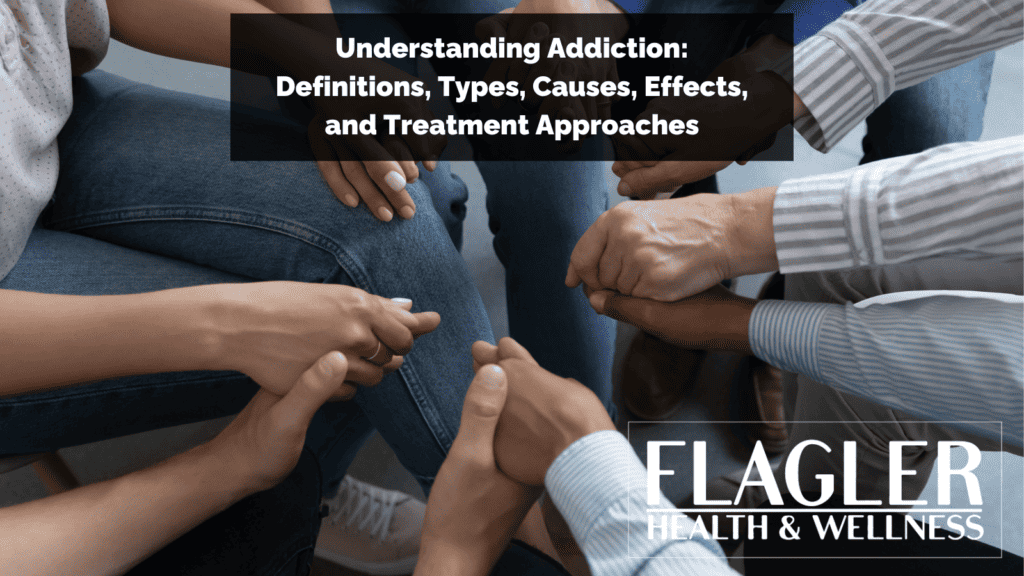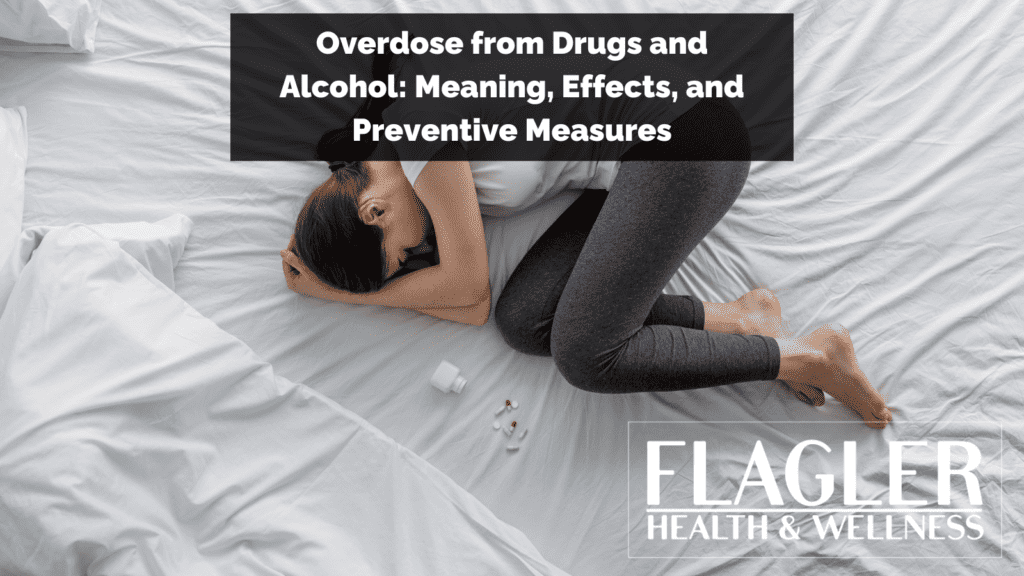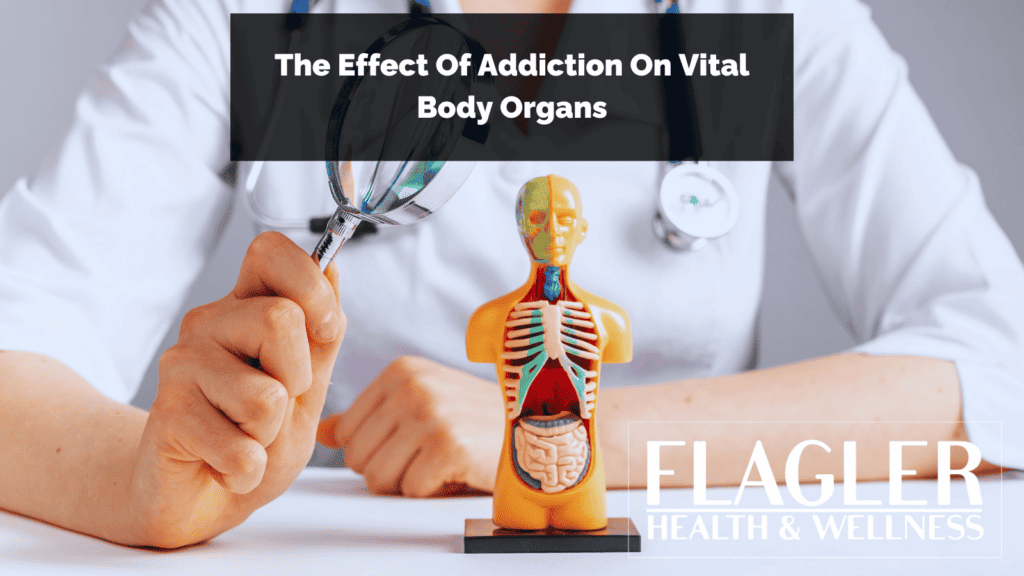Addiction is a disorder characterized by compulsive engagement in an activity or substance usage despite adverse consequences. It can manifest in many forms, including substance abuse and behavioral addictions.
The causes of addiction involve a combination of genetic, environmental, and psychological factors which contribute to the complexity of this disorder.
The effects of addiction include a range of social, financial, and health problems, which require proper treatment. Some of these treatment approaches include medical interventions, counseling, behavioral therapies, and support groups, all aimed at helping individuals reclaim their lives from the grips of addiction.
What is Addiction?
Addiction is characterized by the inability to stop using a substance or engaging in a behavior, despite the negative consequences it may cause. It’s often described as a chronic disease or disorder that affects the brain’s reward, motivation, and memory functions. Someone addicted to substances or behaviors will seek them out at any cost, often leading to the neglect of personal and professional responsibilities.
Addiction is recognized by authoritative sources like the American Psychiatric Association (APA), the National Institute on Drug Abuse (NIDA), and the World Health Organization (WHO) as a serious brain disorder that affects the brain’s structure and function, leading to changes in behavior, perception, and emotional response. The National Institute on Drug Abuse (NIDA) recognizes the changes in the brain that occur with drug use, which affect an individual’s self-control and interfere with their ability to resist intense urges to take drugs.
Factors contributing to addiction can include genetics, the environment, and personal behavior, with the interplay between these factors influencing the development and manifestation of the disorder. Understanding addiction as a brain disorder helps in reducing stigma and promoting more effective approaches to treatment and recovery.
Exploring the Types of Addiction
Addictions can manifest in various forms, primarily categorized into two types: substance addictions and behavioral addictions. Substance addictions involve the compulsive use of substances like alcohol, opioids, cocaine, and nicotine.
Behavioral addictions, on the other hand, include compulsive behaviors like gambling, eating, shopping, and internet use. Both types of addiction have a profound impact on an individual’s physical and mental health, as well as on their social, financial, and occupational wellbeing. Here’s a closer look at the two categories of addiction:
Substance Addictions:
- Alcohol: Recognized by the APA, alcohol addiction is characterized by an inability to manage drinking habits despite the negative social, occupational, or health consequences.
- Opioids: Including prescription pain relievers, heroin, and synthetic opioids like fentanyl. NIDA highlights the high risk of dependency and overdose associated with opioid addiction.
- Tobacco/Nicotine: Identified by the WHO as one of the leading causes of preventable death globally, nicotine addiction is challenging to overcome due to its high relapse rates.
- Cocaine: A powerful stimulant drug, leading to short-term euphoria, energy, and talkativeness, but with a high potential for addiction as per NIDA’s research.
- Cannabis: Though often debated, cannabis use disorder is recognized by the APA, characterized by dependency and withdrawal symptoms in chronic users.
Behavioral Addictions:
- Gambling: Classified as a behavioral addiction by the APA, gambling disorder involves repeated problematic gambling behavior that causes significant problems or distress.
- Internet Use: The excessive use of the internet, which can interfere with daily life, responsibilities, and personal relationships. Studies are ongoing, but some countries and psychologists have begun to treat severe cases as a psychological disorder.
- Shopping: Characterized by an overwhelming urge to shop and spending excessive amounts of time and money on the activity, often leading to financial and interpersonal problems.
- Eating Disorders: While not always classified directly under addiction, behaviors such as binge eating share similarities with addictive behaviors, focusing on compulsive engagement despite adverse consequences.
- Video Gaming: Recognized by the WHO, video game addiction involves compulsive gaming behaviors that significantly impair personal, family, social, educational, or occupational functioning.
Each type of addiction affects the brain’s reward system and involves complex interactions between genetic, environmental, and psychological factors. Treatment approaches vary depending on the type of addiction and the individual’s specific needs, often involving a combination of therapy, medication, and support groups. Understanding the diverse nature of addiction is crucial in developing effective prevention and treatment strategies.
What are the Causes of Addiction
Unpacking the causes of addiction is crucial for developing effective prevention strategies and treatment interventions. Addiction does not stem from a single source; rather, it arises from a complex interplay of genetic, biological, environmental, and social factors. This multifaceted nature makes addiction a particularly challenging issue to address, as individual experiences and susceptibilities vary widely. By examining the various influences that contribute to the development of addiction, researchers and clinicians can better tailor treatments to individual needs, enhancing the chances of successful recovery.
Genetic and Biological Factors
Research suggests that genetics contribute to about half of the likelihood that an individual will develop an addiction. Certain genetic traits can increase the susceptibility to substance use disorders, as can factors like the presence of other mental health disorders, early exposure to drugs, and the method of administration (e.g., smoking or injecting a drug).
Environmental and Social Influences
A person’s environment includes many different influences — from family and friends to socioeconomic status and quality of life in general. Environmental and social factors, such as peer pressure, physical and emotional abuse, early exposure to drugs, and stress, play a significant role in the initiation and continuation of substance abuse and addiction.
What are the Effects of Addiction?
Addiction impacts nearly every aspect of an individual’s life, including their physical health, mental health, social relationships, and occupational or academic performance. Physically, addiction can lead to a wide array of health issues, from cardiovascular diseases to liver disorders and infections.
Psychologically, it is associated with conditions such as depression, anxiety, and bipolar disorder. Socially, addiction can lead to broken relationships, isolation, and legal problems, while occupationally, it can result in decreased productivity, unemployment, and financial instability.
Physical Health:
- Chronic Diseases: Addiction can lead to a range of chronic health conditions, including heart disease, liver cirrhosis, and respiratory issues. Substance abuse directly impacts bodily functions and organs, leading to long-term health complications.
- Increased Risk of Infectious Diseases: NIDA research shows that addiction, particularly injection drug use, significantly increases the risk of infectious diseases like HIV/AIDS and hepatitis due to risky behaviors and compromised immune function.
Mental Health:
- Co-occurring Disorders: Individuals with substance use disorders often experience co-occurring mental health issues, such as anxiety, depression, and bipolar disorder. The relationship between addiction and mental health is complex, with each potentially exacerbating the other.
- Cognitive Impairments: Studies cited by NIDA indicate that long-term substance abuse can lead to cognitive impairments, affecting memory, decision-making, and emotional regulation.
Social Relationships:
- Strained Family Dynamics: Addiction often leads to strained or broken relationships with family and friends, as trust erodes and communication breaks down. The emotional toll on loved ones can be significant, leading to a cycle of stress, conflict, and isolation.
- Workplace Issues: According to WHO, addiction can severely impact job performance, leading to absenteeism, decreased productivity, and even unemployment. This not only affects the individual’s career prospects but also imposes costs on employers and economies.
Societal Impact:
- Economic Burden: The economic impact of addiction is staggering, with the CDC noting significant costs associated with healthcare, lost productivity, and criminal justice proceedings. Society bears the cost of addiction through increased healthcare expenses and the strain on public resources.
- Crime and Legal Issues: NIDA acknowledges a strong link between substance abuse and criminal behavior, including drug trafficking, theft, and violence. Addiction can drive individuals to engage in illegal activities, contributing to public safety concerns and overcrowding in the criminal justice system.
The multifaceted effects of addiction underscore the need for a comprehensive approach to prevention, treatment, and support. Addressing the wide-ranging consequences of addiction requires collaboration across healthcare, mental health, social services, and criminal justice systems to provide effective interventions and promote recovery.
Navigating Treatment Approaches for Addiction
Treatment for addiction is as diverse as the disorder itself, often requiring a combination of therapies to address the myriad issues at play.
- Detoxification: The first step in treatment is often detoxification, performed under medical supervision to manage withdrawal symptoms safely.
- Behavioral Therapies: These are the most common forms of addiction treatment, aiming to modify drug-related behaviors through counseling approaches such as cognitive-behavioral therapy (CBT), contingency management, and motivational interviewing.
- Medication-Assisted Treatment (MAT): MAT combines behavioral therapy and medications to treat substance use disorders, particularly effective in the case of opioid, alcohol, and nicotine addiction.
- Support Groups: Participation in groups like Alcoholics Anonymous (AA) or Narcotics Anonymous (NA) can provide essential peer support and encouragement throughout the recovery process.
- Dual Diagnosis Treatment: For individuals experiencing co-occurring mental health disorders alongside substance use disorders, integrated treatment plans that address both issues simultaneously are critical.
Understanding addiction and its types requires acknowledging its complexity and the fact that effective treatment must be tailored to each individual’s unique situation. With comprehensive care, recovery is possible, allowing individuals to rebuild their lives and reclaim their health, well-being, and happiness.
How We Can Help You
The landscape of addiction is vast and varied, spanning from the tangible effects of substance abuse to compulsive behaviors. No matter what challenge you are facing, recognizing the need for help is the first step on the road to recovery. The second is to find the right treatment program for your needs. At Flagler, we offer specialized programs that are tailored to an individual’s needs, ensuring the highest chance of your success. Remember, seeking help is not a sign of weakness, but rather one of strength and self-awareness. Reach out to us today to see how we can help you on your journey to a brighter, substance-free future.
Share This Post







